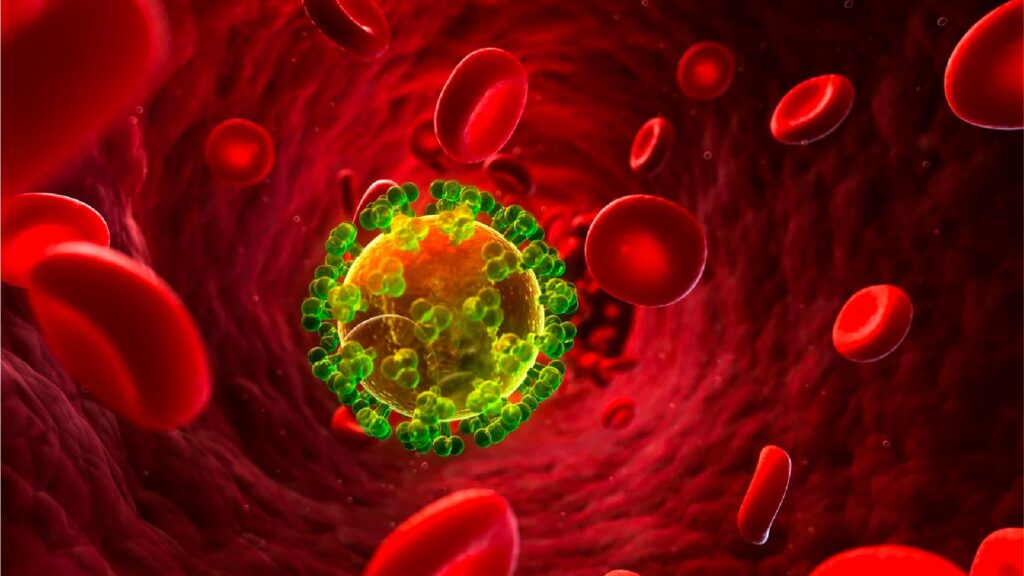People with HIV have badly damaged immune systems. They get an increasing number of severe illnesses, called opportunistic infections (OIs).
Opportunistic infections (OIs) are illnesses that occur more frequently and are more severe in people with HIV. This is because they have damaged immune systems.
Today, OIs are less common in people with HIV because of effective HIV treatment. But some people with HIV still develop OIs because
- they may not know they have HIV,
- they may not be on HIV treatment, or
- their HIV treatment may not be working properly.

Common Opportunistic Infections
Candidiasis
- Candidiasis is caused by infection with a fungus called Candida.
- Candidiasis can affect the skin, nails, and mucous membranes throughout the body.
- People with HIV often have trouble with Candida, especially in the mouth and vagina.
- Candidiasis is only considered an OI when it causes severe or persistent infections in the mouth or vagina, or when it develops in the esophagus (swallowing tube) or lower respiratory tract, such as the trachea and bronchi (breathing tube), or deeper lung tissue.
Invasive cervical cancer
- Cervical cancer starts within the cervix (the lower part of the uterus at the top of the vagina) and spreads (becomes invasive) to other parts of the body.
- Cervical cancer can be prevented by having your health care provider perform regular examinations of the cervix.
Coccidioidomycosis
- This illness is caused by the fungus Coccidioides.
- It is sometimes called valley fever, desert fever, or San Joaquin Valley fever.
- People can get it by breathing in fungal spores.
- The disease is especially common in hot, dry regions
Cryptococcosis
- This illness is caused by infection with the fungus Cryptococcus neoformans.
- The fungus typically enters the body through the lungs and can cause pneumonia.
- Cryptococcosis usually affects the lungs or the central nervous system (the brain and spinal cord), but it can also affect other parts of the body.
Cryptosporidiosis (Crypto)
- Crypto is a diarrheal disease caused by a tiny parasite called Cryptosporidium.
- Symptoms include abdominal cramps and severe, chronic, watery diarrhea.
Cystoisosporiasis
- Formerly known as isosporiasis.
- This infection is caused by the parasite Cystoisospora belli (formerly known as Isospora belli).
- Cystoisosporiasis can enter the body through contaminated food or water.
- Symptoms include diarrhea, fever, headache, abdominal pain, vomiting, and weight loss.
Cytomegalovirus (CMV)
- CMV can infect multiple parts of the body and cause pneumonia, gastroenteritis (especially abdominal pain caused by infection of the colon), encephalitis (infection) of the brain, and sight-threatening retinitis (infection of the retina at the back of eye).
- People with CMV retinitis have difficulty with vision that worsens over time. CMV retinitis is a medical emergency because it can cause blindness if not treated promptly.
Encephalopathy, HIV-related
- This brain disorder can occur as part of acute HIV infection or can result from chronic HIV infection.
- Its exact cause is unknown, but it is thought to be related to infection of the brain with HIV and the resulting inflammation.
Herpes simplex virus (HSV)
- HSV is a common virus that causes no major problems for most people.
- HSV is usually acquired sexually or passed from mother-to-child during birth.
- In most people with healthy immune systems, HSV is usually latent (inactive).
- Stress, trauma, other infections, or suppression of the immune system, (such as by HIV), can reactivate the latent virus and symptoms can return.
- HSV can cause painful cold sores (sometime called fever blisters) in or around the mouth, or painful ulcers on or around the genitals or anus.
- In people with severely damaged immune systems, HSV can also cause infection of the bronchus (breathing tube), pneumonia (infection of the lungs), and esophagitis (infection of the esophagus, or swallowing tube).
Histoplasmosis
- Histoplasmosis is caused by the fungus Histoplasma.
- Histoplasma most often develops in the lungs and produces symptoms similar to the flu or pneumonia.
- People with severely damaged immune systems can get a very serious form of the disease called progressive disseminated histoplasmosis. This form of histoplasmosis can last a long time and spread to other parts of the body.

Lymphoma
- Lymphoma refers to cancer of the lymph nodes and other lymphoid tissues in the body.
- There are many kinds of lymphomas. Some types, such as non-Hodgkin lymphoma and Hodgkin lymphoma, are associated with HIV.
Tuberculosis (TB)
- TB is caused by a bacterium called Mycobacterium tuberculosis.
- TB can spread through the air when a person with TB coughs, sneezes, or speaks. Breathing in the bacteria can lead to infection in the lungs.
- Symptoms of TB in the lungs include cough, tiredness, weight loss, fever, and night sweats.
Mycobacterium avium complex (MAC)
- MAC is caused by infection with different types of mycobacterium: Mycobacterium avium, Mycobacterium intracellulare, or Mycobacterium kansasii.
- These bacteria live in our environment, including in soil and dust particles.
- Infections with these bacteria spread throughout the body and can be life threatening in people with weakened immune systems.
Pneumocystis pneumonia (PCP)
- PCP is a lung infection caused by the fungus Pneumocystis jirovecii.
- PCP occurs in people with weakened immune systems.
- The first signs of infection are difficulty breathing, high fever, and dry cough.
Pneumonia
- Pneumonia is an infection in one or both lungs.
- Many germs, including bacteria, viruses, and fungi, can cause pneumonia.
- Symptoms include a cough (with mucous), fever, chills, and trouble breathing.
- In people with immune systems severely damaged by HIV, one of the most common and life-threatening causes of pneumonia is an infection with the bacteria Streptococcus pneumoniae, also called Pneumococcus. People with HIV should get a vaccine to prevent infection with Streptococcus pneumoniae.
Progressive multifocal leukoencephalopathy
- This rare brain and spinal cord disease is caused by the JC (John Cunningham) virus.
- It is seen almost exclusively in people whose immune systems have been severely damaged by HIV.
- Symptoms may include loss of muscle control, paralysis, blindness, speech problems, and an altered mental state.
- This disease often progresses rapidly and may be fatal.
Wasting syndrome due to HIV
- Wasting is defined as the involuntary loss of more than 10% of one’s body weight while having experienced diarrhea or weakness and fever for more than 30 days.
- Wasting refers to the loss of muscle mass, although part of the weight loss may also be due to loss of fat.
How to prevent opportunistic infections?
Taking HIV medicine is the best way to prevent getting OIs. HIV medicine can keep your immune system strong and healthy. If you develop an OI, talk to your health care provider about how to treat it.
There are also steps you can take to prevent getting OIs:
- Talk to your health care provider about medicines and vaccines that prevent certain OIs.
- Prevent exposure to other sexually transmitted diseases.
- Don’t share needles, syringes, or other drug injection equipment (for example, cookers).
- Limit your exposure to germs that could make you very sick. This includes tuberculosis or germs found in the stools, saliva, or on the skin of animals.
- Don’t consume certain foods, including undercooked eggs, raw milk and cheeses, unpasteurized fruit juices, or raw seed sprouts.
- Don’t drink untreated water, such as water directly from lakes or rivers. Avoid drinking tap water in foreign countries. Use bottled water or water filters.
- Talk to your health care provider about things that could expose you to OIs at work, at home, and on vacation.


